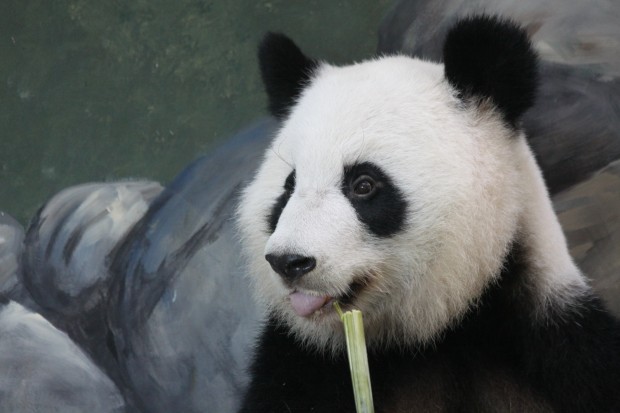Artificial Insemination @ Zoo Atlanta
Lun Lun entered her critically short fertility period yesterday. Zoo Atlanta’s Animal Management Team has been monitoring the 15-year-old bear for signs that her estrous cycle was approaching since her third cub, Po, was weaned in January.
Time is of the essence in captive breeding of giant pandas, which are fertile for just two to three days a year. Hormone analyses conducted by Dr. David Kersey, an expert in giant panda endocrinology from Western University of Health Sciences, indicated that Lun Lun ovulated on March 21. This was an unusually short estrous period of seven to eight days; 10 to 14 days is normal for giant pandas. Thus, the timing was especially critical to provide the best possible chance for success.
As in previous years, Lun Lun and Yang Yang showed little interest in mating. The pair has never successfully mated in their more than 13 years together, and all three of their previous cubs have been products of artificial insemination (AI). Their two younger offspring, males Xi Lan, 4, and Po, 2, currently reside at Zoo Atlanta. Their firstborn, male Mei Lan, now lives at the Chengdu Research Base of Giant Panda Breeding in China.
Two AI procedures were performed, one on March 21 and another on March 22. The Animal Management and Veterinary Teams were assisted by Dr. Copper Aitken-Palmer, Chief Veterinary Medical Officer at Smithsonian’s Conservation Biology Institute and an expert in giant panda reproductive physiology, and Dr. David Kersey. The species’ famously short fertility window dictates that AI be performed within hours of ovulation.
Source: Zoo Atlanta










